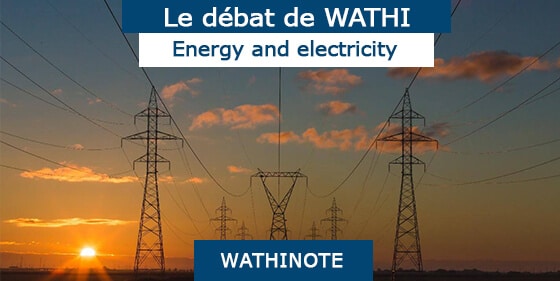

Authors: Ifeyinwa Ufondu and Ike C. Ibeku
Affiliated organizations: Benchmac & Ince, Lexology
Type of publication: Online article
Date of publication: 23 September 2019
Is there any legal definition of what constitutes ‘renewable energy’ or ‘clean power’ (or their equivalents) in your jurisdiction?
The National Renewable Energy and Energy Efficiency Policy (NREEEP) defines renewable energy as energy obtained from energy sources whose utilisation does not result in the depletion of the earth’s resources. Renewable energy also includes energy sources and technologies that have minimal environmental impact, such as less intrusive hydros and certain biomass combustion. These sources of energy normally will include solar energy, wind, biomass, small and medium-sized hydro, geothermal, tide and wave energy.
What is the legal and regulatory framework applicable to developing, financing, operating and selling power and ‘environmental attributes’ from renewable energy projects?
The National Electric Power Policy 2001 outlines the framework for power sector reforms in Nigeria. The EPSR Act provides the legal and regulatory framework for the sector. It is the principal law for the regulation of the sector. The fundamental change it birthed was the privatisation of the government-owned electricity company and the process towards a completely liberalised market. The Act encouraged promotion of electricity generation from all sources of energy, including renewable energy.
The Environmental Impact Assessment Act makes it mandatory for an EIA to be conducted on projects that are likely to have significant effect on the environment.
NREEP outlines the global thrust of the policies and measures for the promotion of renewable energy and energy efficiency. It seeks to bring to the attention of policymakers the economic, political and social potential of renewable energy. It also recognises the multidimensional nature of energy and addresses diverse issues such as renewable energy supply and utilisation; renewable energy pricing and financing; legislation, regulation and standards; energy efficiency and conservation; renewable energy project implementation issues; research and development; capacity building and training; gender and environmental issues; planning and policy implementation. This policy on renewable energy and energy efficiency sets out a framework for action to address Nigeria’s challenge of inclusive access to modern and clean energy resources.
Does the government offer incentives to promote the development of renewable energy projects? In addition, has the government established policies that also promote renewable energy?
In recognising the need and value of electric power generation to grow the economy, the government has made certain incentives available in the form of tax reliefs for electricity generation, which also cover renewable projects. These include the Industrial Development (Income Tax Relief) Act geared at attracting foreign investment to Nigeria, where eligible companies can be issued with pioneer status certificates. Therefore, companies involved in independent power generation using gas, coal and renewable energy sources can be conferred with pioneer status, which exempts them from payment of income tax for between three and five years.
In order to promote renewables, the government has over the years drawn up a number of policies.
Renewable Electricity Action Programme 2006
The main focus of this document is utilising all forms of renewable energy sources for electricity generation. It highlights potential gaps, technical assessments and the financial implications of utilising renewable energy and looks at the general overview of the potential for renewable energy technologies, and potential markets, elaborating on the development targets per technology, application and strategies for achievement.
National Biofuel Policy and Incentive 2007
This is meant to support a biofuel programme, with the aim of integrating the agricultural sector of the Nigerian economy, as a means of improving the quality of automotive fossil-based fuels in Nigeria.
In recognising the need and value of electric power generation to grow the economy, the government has made certain incentives available in the form of tax reliefs for electricity generation, which also cover renewable projects
Rural Electrification Strategy and Implementation Plan (RESIP)
This is a follow-up to the Nigerian Rural Electrification Policy. The primary objective is to expand access to electricity as rapidly as possible in a cost-effective manner through the use of both grid and off-grid approaches from renewable and thermal sources in rural areas.
Building Energy Efficiency Code 2017
The national Building Energy Efficiency Code is a set of minimum standards for energy-efficient building in Nigeria. The objective is to reduce energy costs and wastage, and conserve available energy for utilisation where and when necessary in various homes, companies and public buildings.
Les Wathinotes sont soit des résumés de publications sélectionnées par WATHI, conformes aux résumés originaux, soit des versions modifiées des résumés originaux, soit des extraits choisis par WATHI compte tenu de leur pertinence par rapport au thème du Débat. Lorsque les publications et leurs résumés ne sont disponibles qu’en français ou en anglais, WATHI se charge de la traduction des extraits choisis dans l’autre langue. Toutes les Wathinotes renvoient aux publications originales et intégrales qui ne sont pas hébergées par le site de WATHI, et sont destinées à promouvoir la lecture de ces documents, fruit du travail de recherche d’universitaires et d’experts.
The Wathinotes are either original abstracts of publications selected by WATHI, modified original summaries or publication quotes selected for their relevance for the theme of the Debate. When publications and abstracts are only available either in French or in English, the translation is done by WATHI. All the Wathinotes link to the original and integral publications that are not hosted on the WATHI website. WATHI participates to the promotion of these documents that have been written by university professors and experts.
